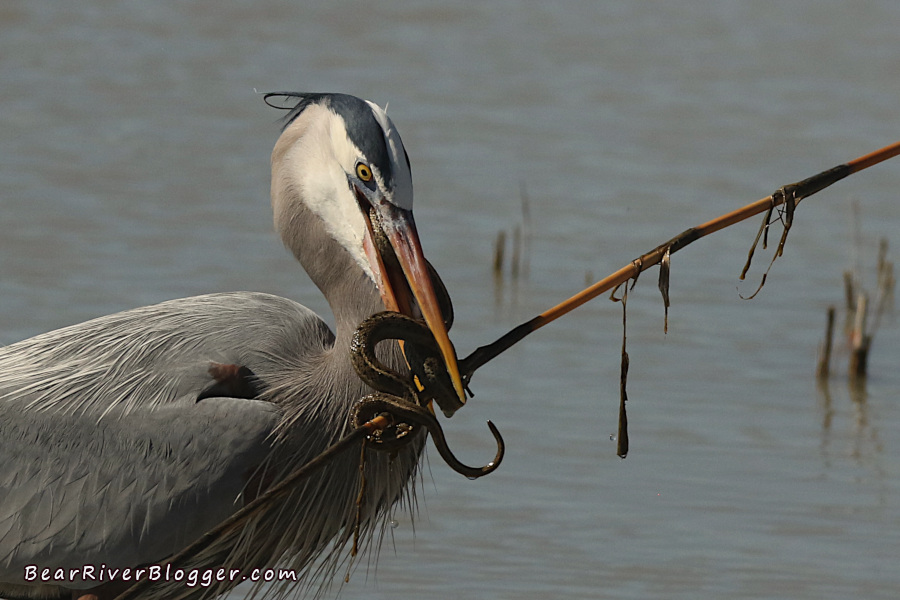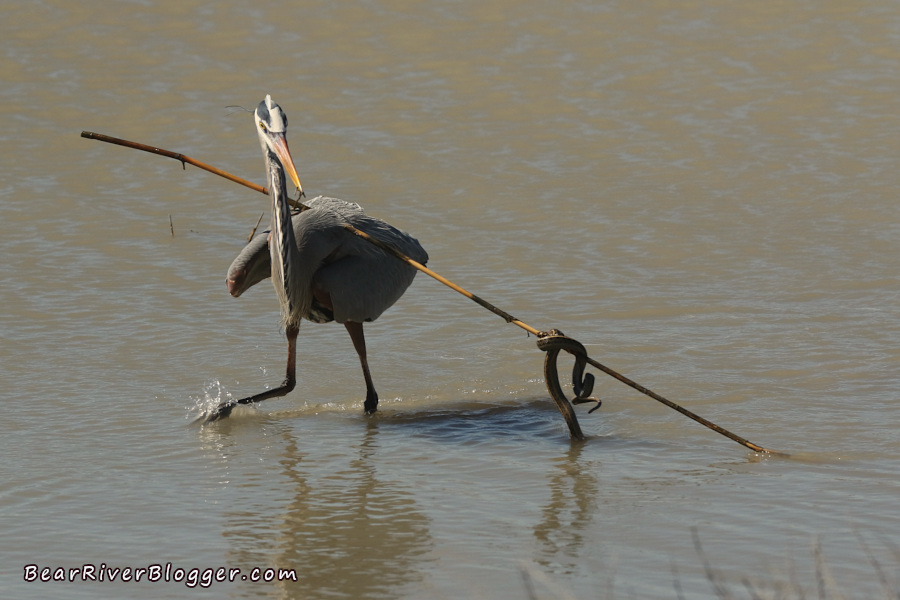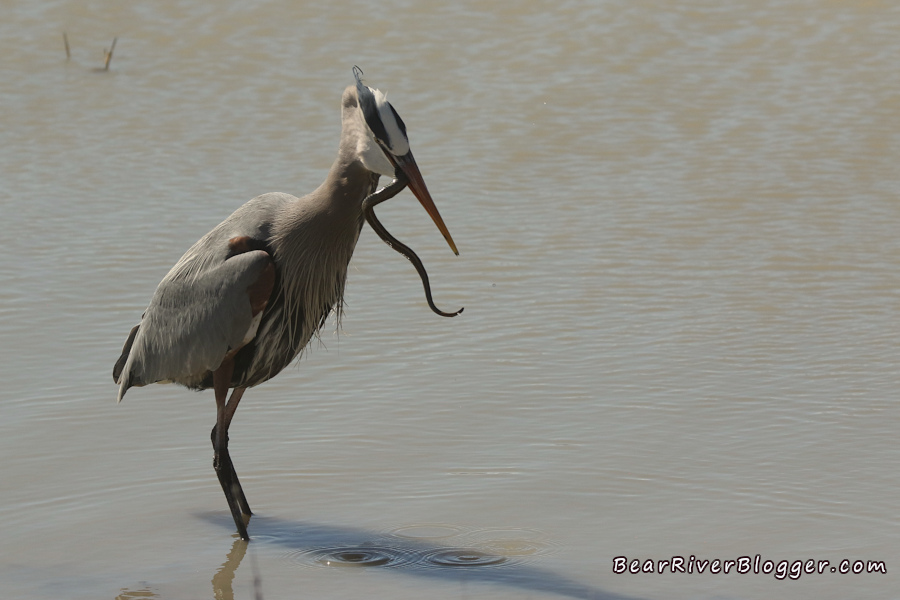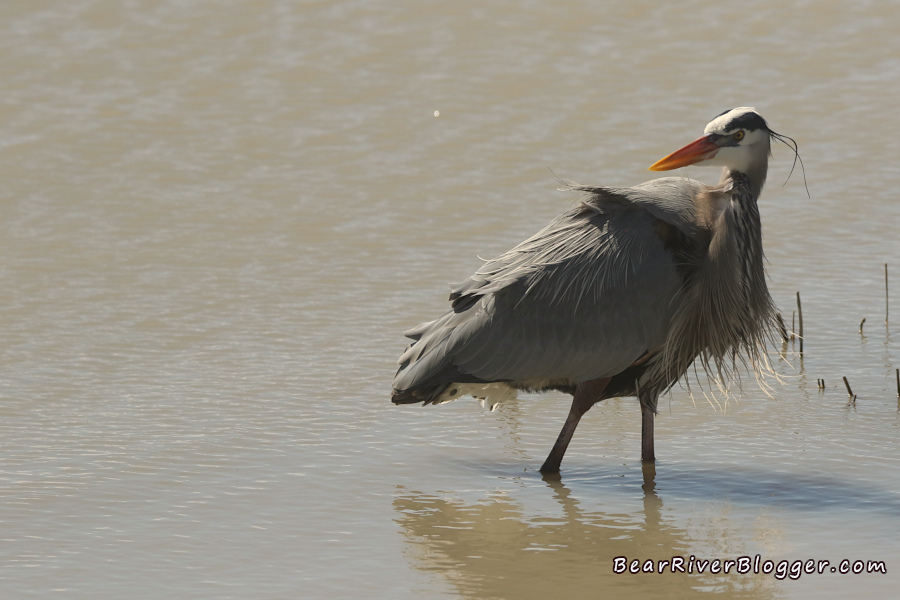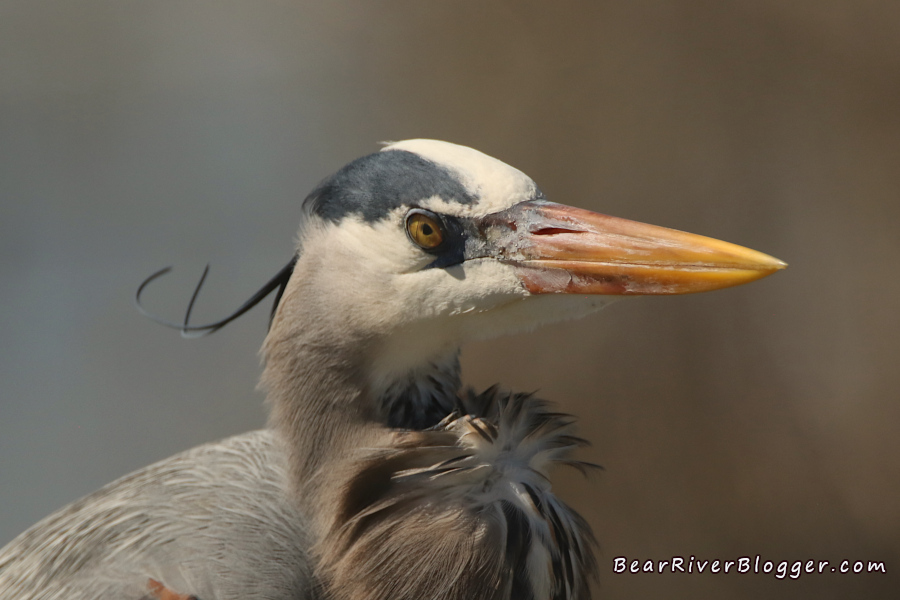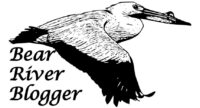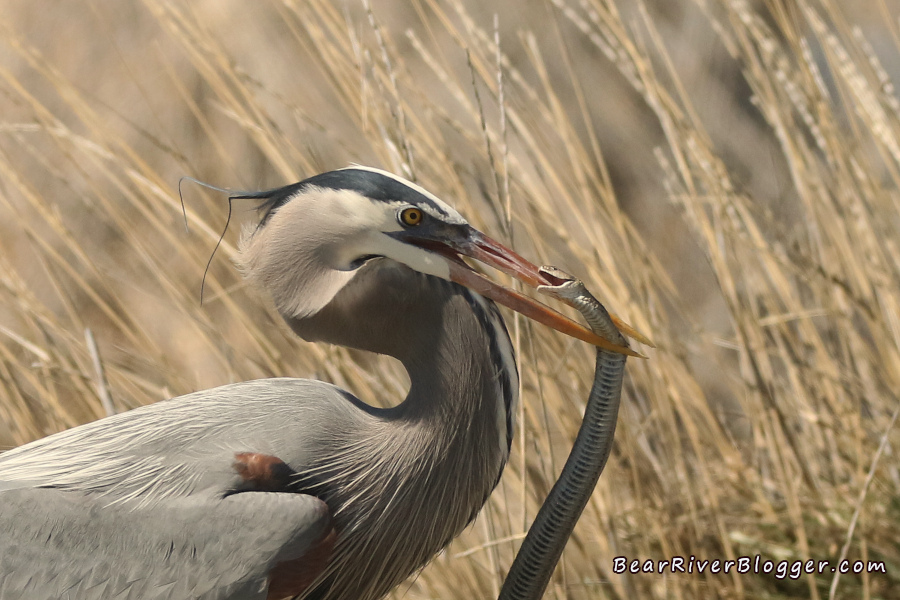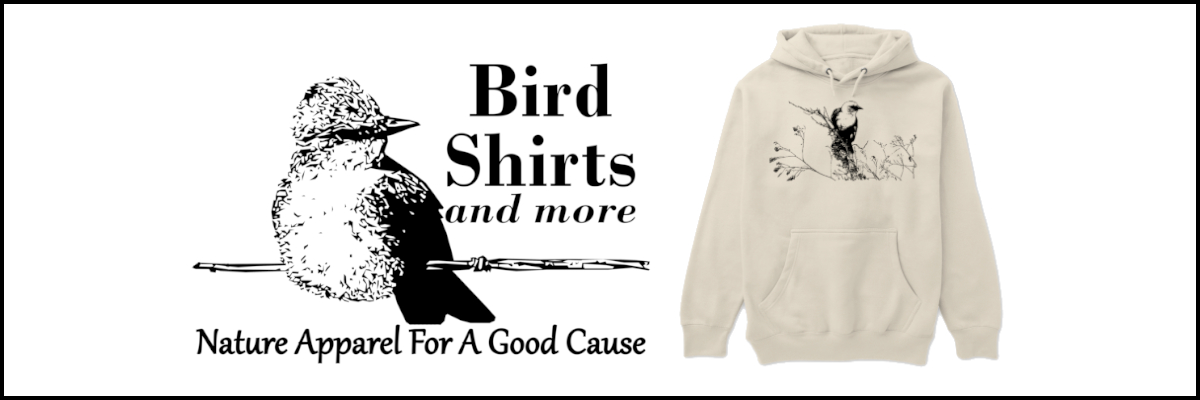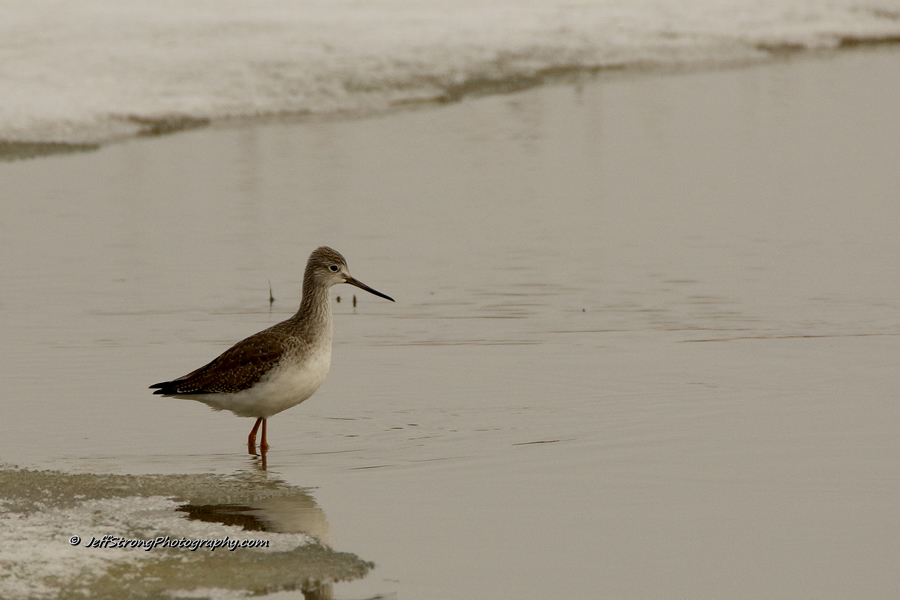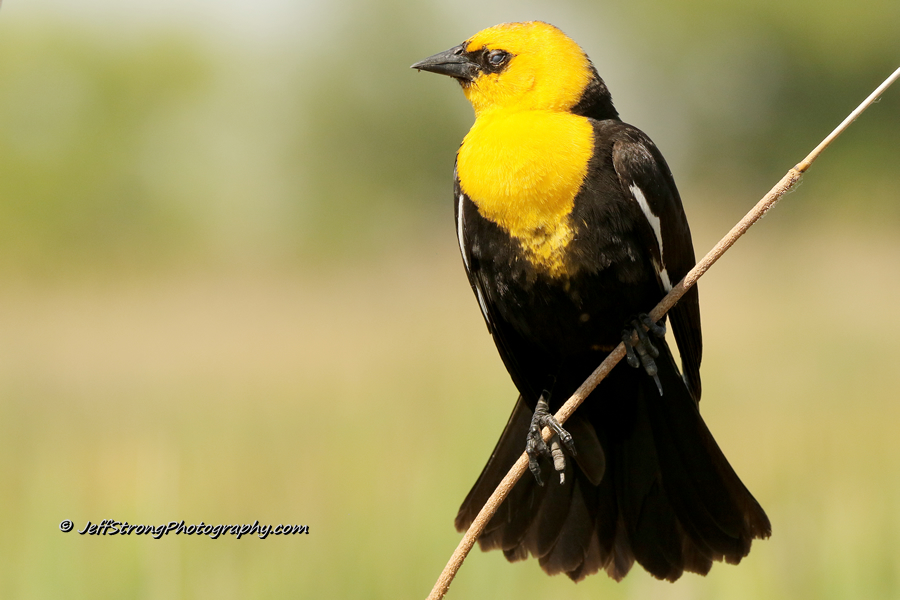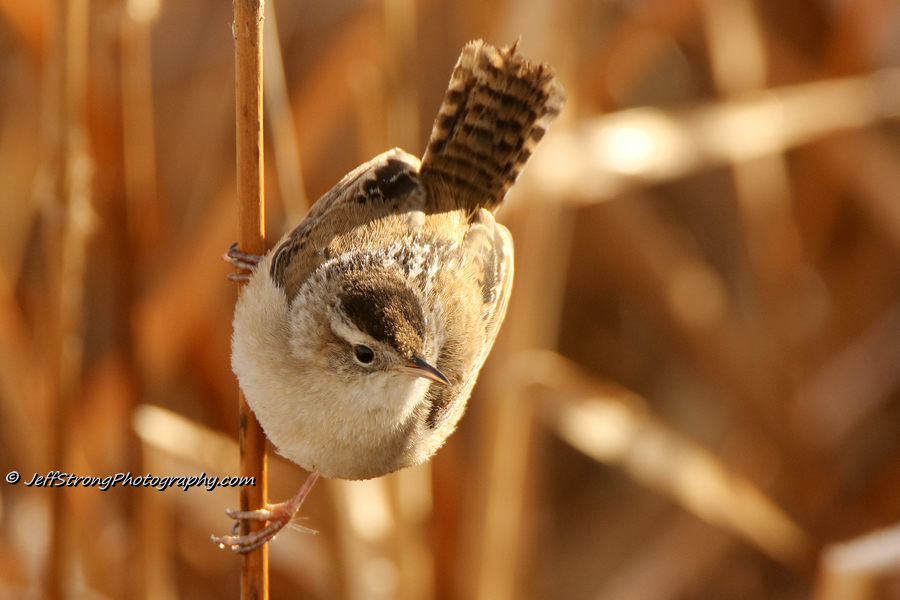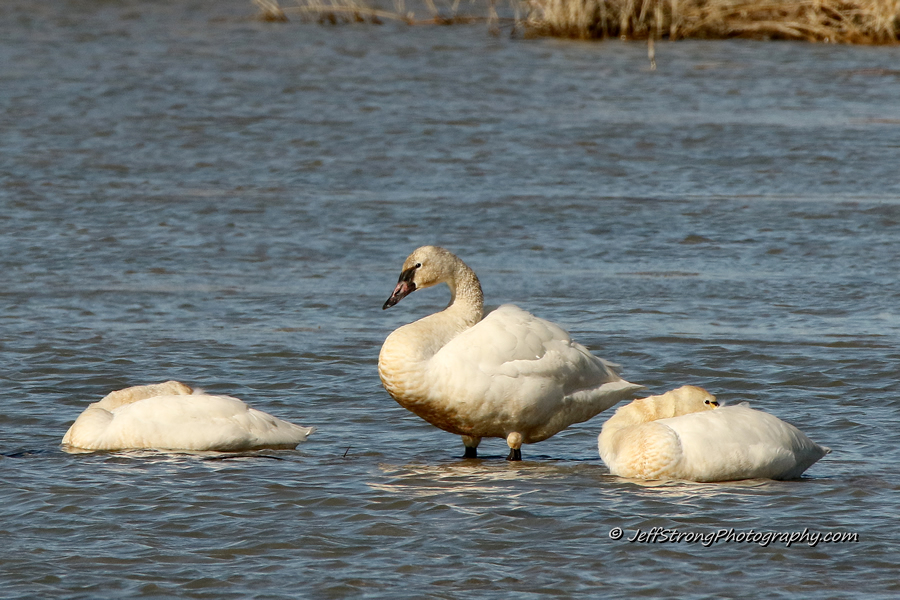If there’s one thing, besides my love for nature that is, I hope to impart to those of you who read, subscribe to, and follow this website it’s that the best way to learn about and, more importantly, foster an appreciation for nature is to go and experience it first hand.
There’s nothing better or more relaxing, from my own experience that is, than to get outside and just enjoy the natural world around us and it’s even better, icing on the cake per se, when we can return home after learning something new about nature just from our time observing and experiencing the outdoors.
That very thing, in fact, learning something new about nature, well, great blue herons to be more precise in this case, happened to me today and is the focus of this particular blog post and the related photo gallery below.
Despite the endless windstorm that’s been plaguing northern Utah the past couple of days, this morning I decided to go and do just that, experience nature in person by taking a drive around the Bear River Migratory Bird Refuge auto tour route, and, honestly, it ended up being one of the single most educational moments I’ve had so far on the bird refuge.
I ended up learning something about great blue herons and garter snakes I hadn’t known before and it was all due to me simply getting outdoors and immersing myself in the natural world around us.
Surprisingly, my birdwatching trip was quite slow for March, most likely from the relentless strong east winds I’d imagine.
As my vehicle casually meandered its way around the loop, I kept a sharp eye on both sides of the gravel roadway in search of any and all birds that might present themselves for a photo or two despite the prevailing winds.
With only a few coots and a solitary gull to my birding tally so far, I rounded the southwest corner of the auto loop where a great blue heron and a garter snake had just begun and were now locked in a battle for survival, a vital struggle between two equally important creatures in nature that, unfortunately, can only produce one true and outright winner.
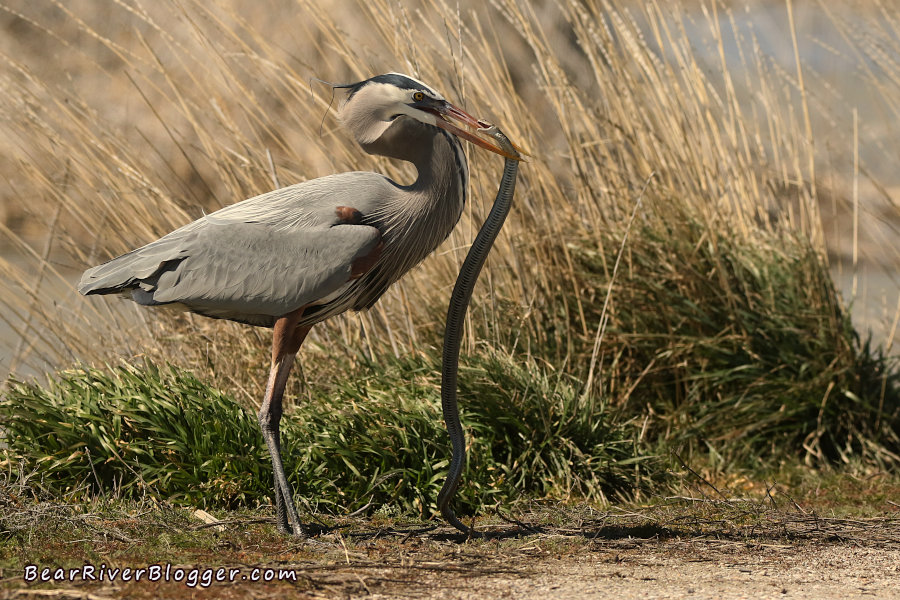
But it wasn’t this epic scene by itself, a traditional clash between predator and prey, that enhanced both my knowledge of great blue herons, in particular, and increased my appreciation for nature, in general, as I’ve seen those kinds of battles play out countless times over the years on the Bear River Migratory Bird Refuge.
The overall struggle between heron and snake did play a part in it I will admit but, much more importantly, however, it was what happened after the skirmish was over that rewarded me for my time and effort to go and experience nature the way it was meant to be, not in a classroom or behind a computer screen but rather outdoors and in-person.
I watched the tussle unfold for almost 15 minutes before it ended, feeling torn and maybe a bit confused about who we are supposed to root for, if any actually, in nature during these circumstances concerning the dynamics of the predator and prey relationship.
Photographing the heron and snake reminded me of a similar scene I captured with my camera a few years ago in January when I photographed an immature bald eagle just as it grabbed a pied-billed grebe with its talons on the Bear River itself for a much-needed winter meal, conjuring up the initial question about who, if any, are we supposed to root for in nature during these most intimate and somber of situations.
In this particular case, the great blue heron obviously had the upper hand, being the much larger player in this particular scenario, but as I soon witnessed, the garter snake was determined to hold on and not bow out without a fight, and a valiant and enduring fight it gave I will admit.
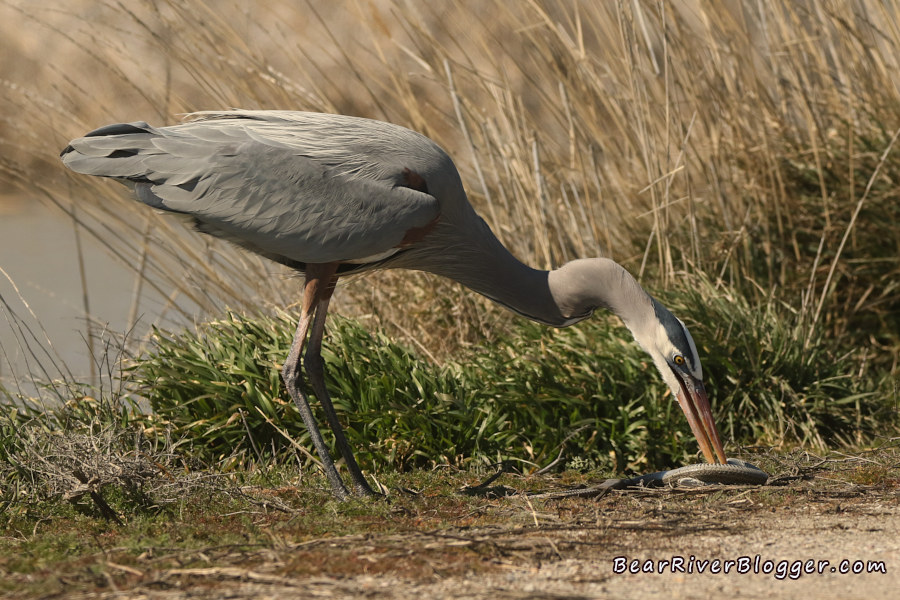
Initially, the heron was just trying to hold on to the scrappy reptile, dropping and picking it up again with the heron’s long, sharp beak, obviously frustrated with the intense opposition the snake was giving its foe.
Over time, however, the great blue heron subdued the garter snake and flew off with its newly found meal in its beak, most likely to eat the snake elsewhere in peace and never to be seen again, or so I thought.
As quickly as the heron took to the air it landed again, not in a distant or secluded corner of the refuge but in a shallow pond, one ironically located just a few yards away from the initial confrontation.
I wondered what caused the heron to suddenly fly off but also land so quickly afterward as I kept my distance during the entire altercation to not disturb or influence the outcome in any way for either the great blue heron or the garter snake, letting nature play out the way it was supposed to be no matter the result.
Only a matter of seconds had expired after the heron landed in the shallow water when I got my answer, teaching me something about great blue herons and garter snakes I hadn’t known before.
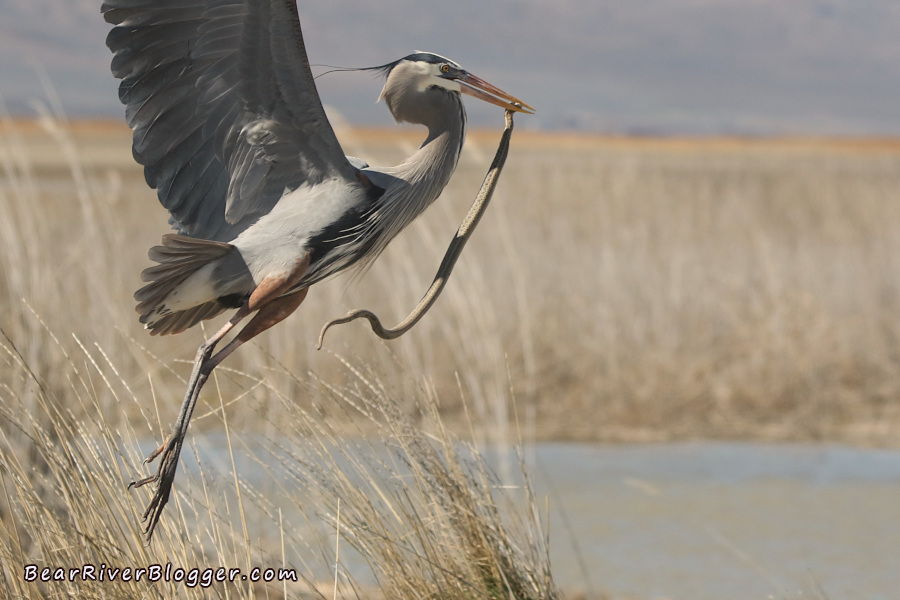
In addition to eating fish and many other and quite different types of prey, including muskrats, great blue herons also eat snakes but there is something this particular heron did that I am certain wasn’t a fluke but seemingly helped the large bird to begin swallowing the dry, scaled reptile and eventually get it down its throat, it purposely and repeatedly dunked the garter snake in the shallow water.
I’m certain that is why the heron flew off and abruptly landed in the nearby shallow pond, it needed a little water to help swallow the snake, however, there was still another obstacle to overcome that just surfaced.
Surprisingly, the garter snake hadn’t completely given up as it began to wrap its tail around a long stick in one last-ditch effort to thwart the heron’s plan for an easy meal.
For the last 5 minutes of this battle between heron and snake, the long reptile hung on to that stick with all it had, even while the heron had already started to swallow the subdued snake and had to regurgitate it once it realized the stick was going to pose a problem with the large bird in finishing its meal.
I’m not sure how the snake had enough wherewithal still inside to grab onto and wrap itself around the stick but at one point its long, slender body was in quite a large knot that was obviously holding onto that stick with a distinct purpose in mind, one last and great act of defiance that showed me just how resilient snakes can be even when they had obviously lost the struggle for survival like this one did today.
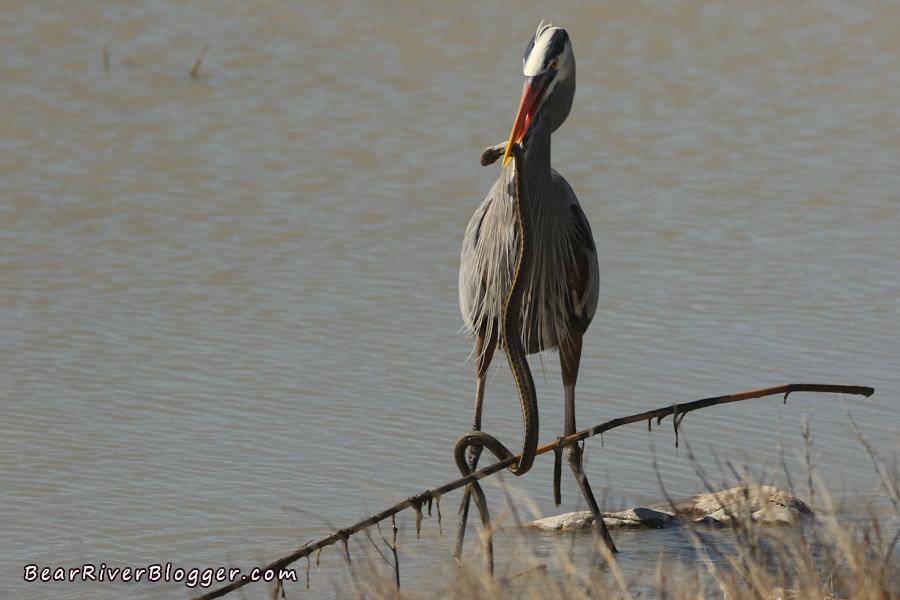
Even though there wasn’t any real fight left in the garter snake at this point, it still posed quite a problem for the great blue heron in consuming its meal, causing the heron to prance around in any way it could to pry the now tangled snake from the stick.
It took a while but eventually, the great blue heron’s determination prevailed, the snake was extracted from the stick and quickly dunked in the water once again as the heron started to swallow its meal.
Afterward, the heron took several drinks of water, once again reaffirming my observation that the great blue heron used the water to help swallow the long, dry snake, something I had never seen before or even heard of until today but it obviously was a very purposeful part of the heron’s actions as it swallowed the garter snake.
This whole experience taught me a few things, one being even when it’s a slow day of birdwatching that at any time, any moment something incredible can present itself if we just get out and experience nature.
It also taught me how resilient both predator and prey are during these kinds of struggles as neither the heron nor the snake gave up the fight to survive, each deserving our attention and admiration for whatever role creatures like these play in nature.
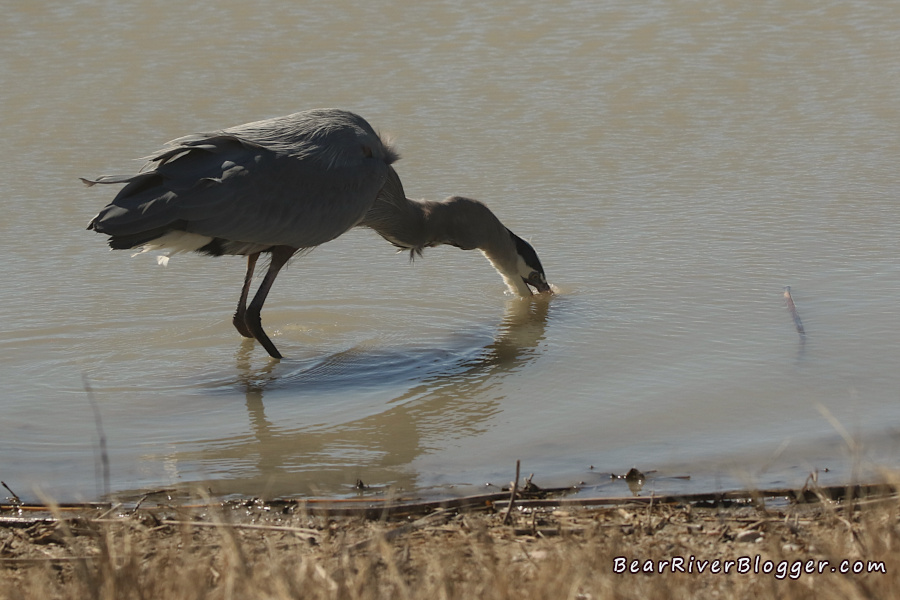
If you are a nature enthusiast, a birdwatcher, an outdoor photographer, or just somebody who likes the wide open spaces of our natural world, I offer you to head on over to our subscribe page and sign up for email notifications for future blog posts about our excursions and love for nature.
For those of you who use social media, I have also started a Bear River Blogger Facebook page you can follow where I post small and more frequent updates, photos, and other things of interest about the famous Bear River Migratory Bird Refuge and other natural places I photograph and write about here on this website.
Photo Gallery Of Today’s Experience
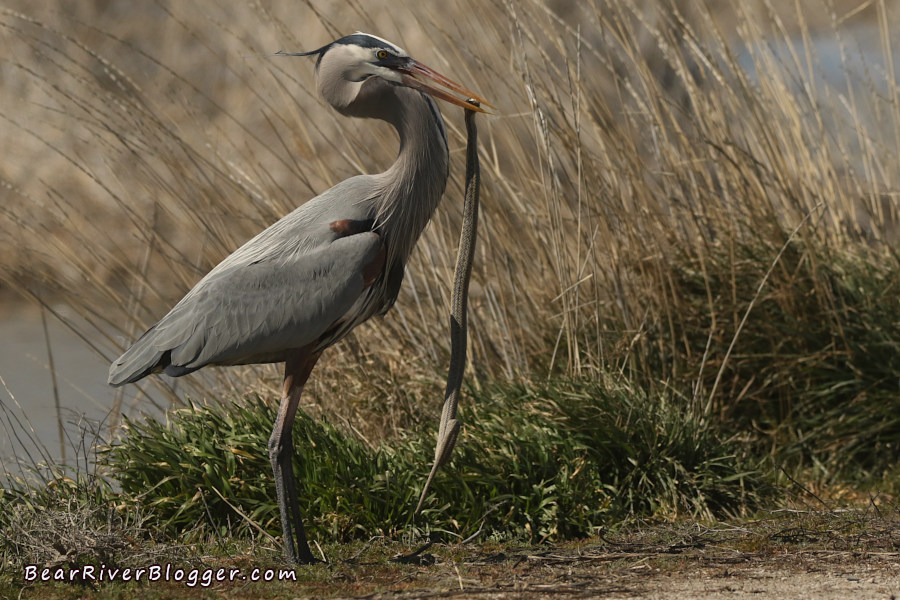
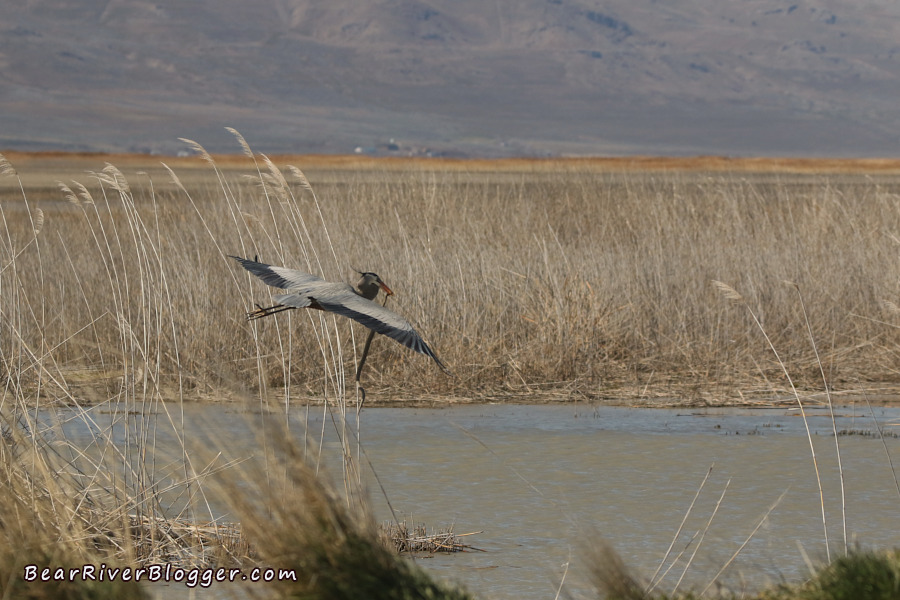
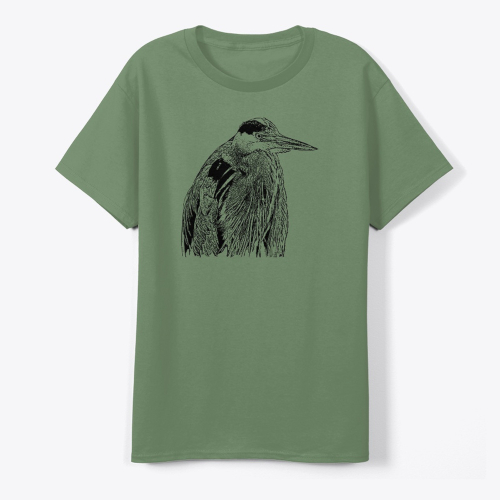
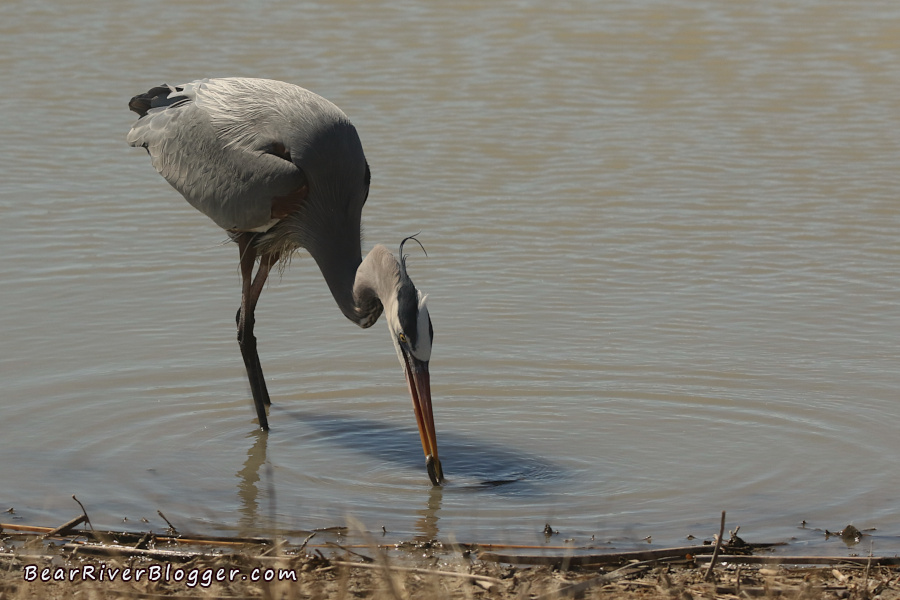
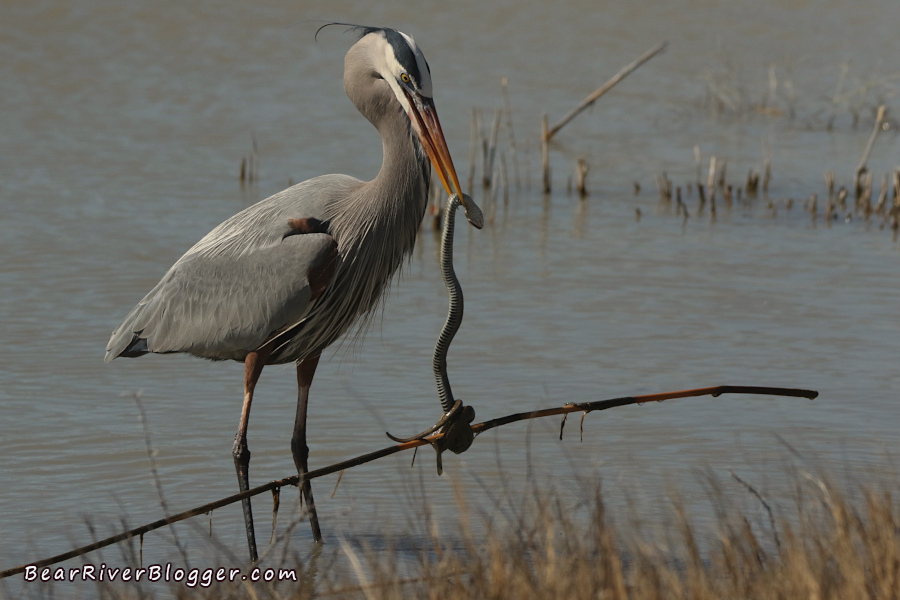
(Great Blue Herons And Goldeneye Ducks. For short nature photography tips and interesting stories about the natural world around us, subscribe to our Bear River Blogger channel on YouTube for videos and updates from our travels while out in nature, both on and off of the famed Bear River Migratory Bird Refuge.)
